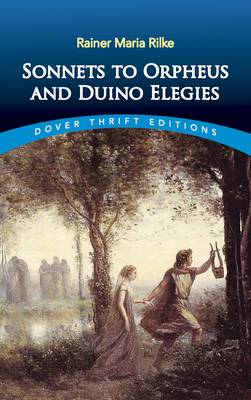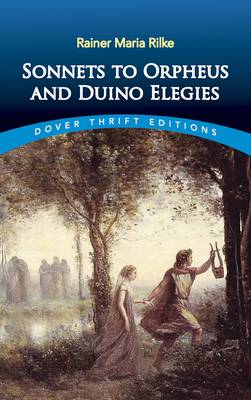
Je cadeautjes zeker op tijd in huis hebben voor de feestdagen? Kom langs in onze winkels en vind het perfecte geschenk!
- Afhalen na 1 uur in een winkel met voorraad
- Gratis thuislevering in België vanaf € 30
- Ruim aanbod met 7 miljoen producten
Je cadeautjes zeker op tijd in huis hebben voor de feestdagen? Kom langs in onze winkels en vind het perfecte geschenk!
- Afhalen na 1 uur in een winkel met voorraad
- Gratis thuislevering in België vanaf € 30
- Ruim aanbod met 7 miljoen producten
Zoeken
Omschrijving
During three feverish weeks in 1922, Rainer Maria Rilke composed the 55 sonnets that constitute Sonnets to Orpheus. Inspired by the death of a friend's daughter, the poet felt that he was being compelled to write by the girl's ghost. At about the same time he also completed Duino Elegies, which he had begun ten years earlier. Intimately connected to the Sonnets in themes and sensibilities, the Elegies offer meditations on love, death, God, and life's meaning that express Rilke's irresolvable conflict between a longing for solitude and a painful loneliness.
Although his poetry was recognized and admired by leading European artists, the Austro-Bohemian poet was virtually unknown during his lifetime, achieving international acclaim only with these final masterpieces. This edition presents translations by Jessie Lemont, praised by London's Times Literary Supplement for their presentation of Rilke as "a writer of short individual lyrics, often of incomparable, impressionist vividness, plastic vitality and symbolic suggestiveness."
Although his poetry was recognized and admired by leading European artists, the Austro-Bohemian poet was virtually unknown during his lifetime, achieving international acclaim only with these final masterpieces. This edition presents translations by Jessie Lemont, praised by London's Times Literary Supplement for their presentation of Rilke as "a writer of short individual lyrics, often of incomparable, impressionist vividness, plastic vitality and symbolic suggestiveness."
Specificaties
Betrokkenen
- Auteur(s):
- Vertaler(s):
- Uitgeverij:
Inhoud
- Aantal bladzijden:
- 112
- Taal:
- Engels
- Reeks:
Eigenschappen
- Productcode (EAN):
- 9780486838670
- Verschijningsdatum:
- 15/01/2020
- Uitvoering:
- Paperback
- Formaat:
- Trade paperback (VS)
- Afmetingen:
- 130 mm x 203 mm
- Gewicht:
- 90 g

Alleen bij Standaard Boekhandel
+ 13 punten op je klantenkaart van Standaard Boekhandel
Beoordelingen
We publiceren alleen reviews die voldoen aan de voorwaarden voor reviews. Bekijk onze voorwaarden voor reviews.









